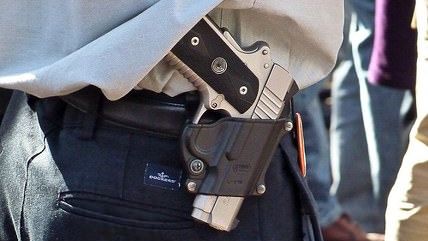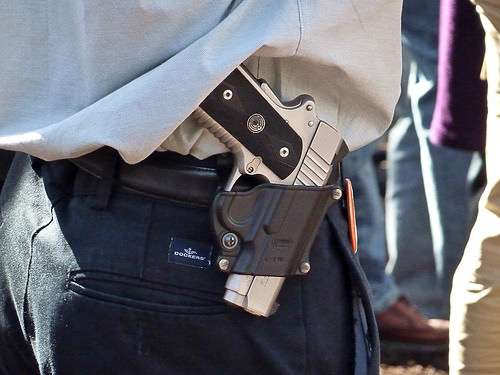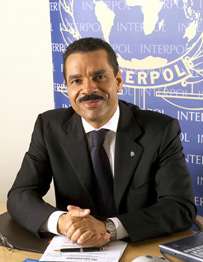Armed Citizens May Be the Solution to Terrorism, Says Interpol Secretary General


What do you do when terrorists turn from attacking well-protected government buildings and transportation centers in favor of anyplace that people may congregate? Specifically, how do you address bloody scenarios like the assault on the Westgate mall in Nairobi, Kenya by the Islamist group al-Shabaab, which killed at least 61 civilians? Well, the Secretary General of Interpol, the international police-coordination organization, says you either start providing "extraordinary security" perimeters around anything that might be a target, or else let people carry the means to defend themselves. Surprisingly, he seems to lean toward empowering individuals to take responsibility for their own defense.
In an interview with ABC News, Interpol Secretary General Ronald K. Noble said:
"Societies have to think about how they're going to approach the problem," Noble said. "One is to say we want an armed citizenry; you can see the reason for that. Another is to say the enclaves are so secure that in order to get into the soft target you're going to have to pass through extraordinary security."
"Enclaves" translates as "any place people gather," which could be a mall, a theater, a supermarket, a town square… That's an awful lot of secure perimeters to set up. No doubt, plenty of police unions and politically well-connected private security companies would love to see that effort made, but are you really going to throw a cordon up every time a few people gather to chat about the weather or have a barbecue? Unusually for a government official (he was the Undersecretary for Enforcement of the United States Department of the Treasury, in charge of the Secret Service as well as the ATF), Noble obviously sees that as a bit of a daunting challenge. He adds:
"Ask yourself: If that was Denver, Col., if that was Texas, would those guys have been able to spend hours, days, shooting people randomly?" Noble said, referring to states with pro-gun traditions. "What I'm saying is it makes police around the world question their views on gun control. It makes citizens question their views on gun control. You have to ask yourself, 'Is an armed citizenry more necessary now than it was in the past with an evolving threat of terrorism?' This is something that has to be discussed."
"For me it's a profound question," he continued. "People are quick to say 'gun control, people shouldn't be armed,' etc., etc. I think they have to ask themselves: 'Where would you have wanted to be? In a city where there was gun control and no citizens armed if you're in a Westgate mall, or in a place like Denver or Texas?'"

I'd answer that allowing people to proactively respond to threats has always been a better idea that trying to anticipate what assailants might consider to be an easy target. You can't fortify every gathering on the planet, and each security perimeter will still have potential victims within it for the enterprising terrorist who can penetrate "extraordinary security."
The Secretary General, by the way, also called for tighter passport controls, so his comments weren't a totally unmixed bag for those of us favoring personal liberty and autonomy. Travel has become an increasingly bureaucratic ordeal over the past century, and that doesn't look likely to let up soon.
Noble (pictured at right) was first appointed to oversee Interpol's day-to-day work in 2000, and his third five-year term is up in 2015. After voicing even measured support for armed citizens in a world where governments have never much liked the idea, let's see if he makes it to through the full gig.
Update: Minneapolis police officers may agree, even by accident, with Secretary General Noble. They're objecting to an NFL policy banning off-duty cops from taking their guns into stadiums. Without their guns, they point out, they won't be able to respond to attacks.


Show Comments (49)